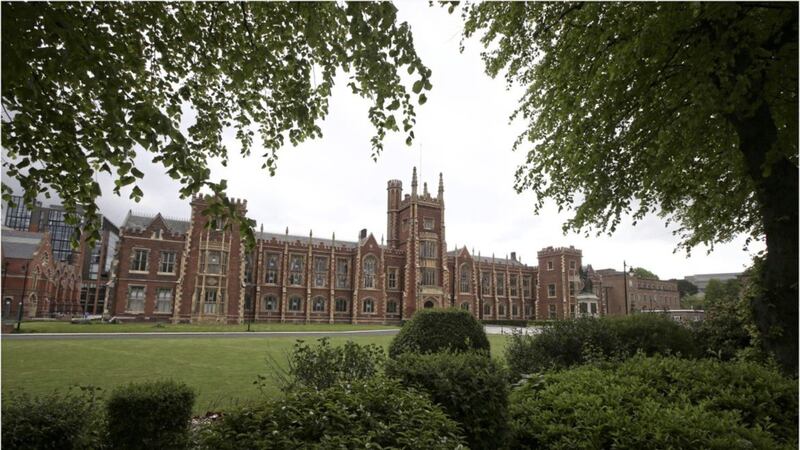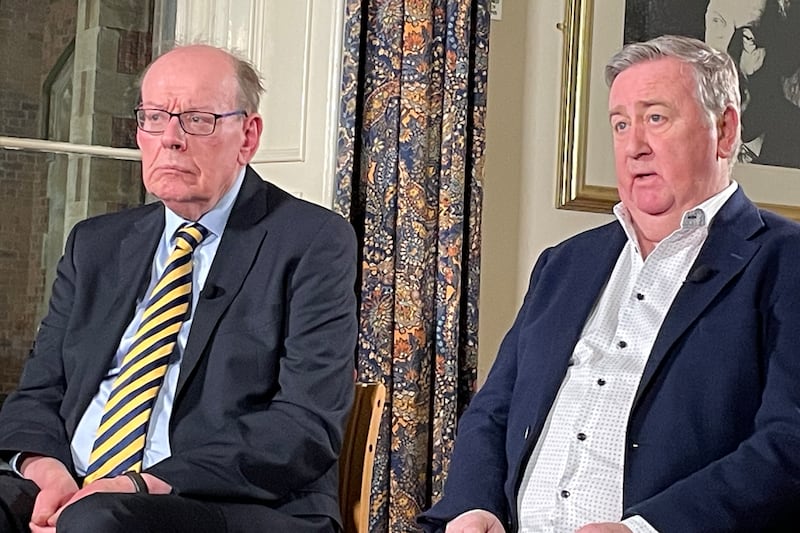QUEEN'S University Belfast has warned it may need up to 1,000 extra places to admit all students affected by the A-level grading fiasco.
The university is seeking "clarity as a matter of urgency" following Education Minister Peter Weir's climbdown over how A-level grades this year would be determined.
Stormont controls the number of undergraduate places available at Queen's and Ulster universities for Northern Ireland students as their tuition fees are part-funded by the Department for the Economy.
The cap keeps tuition fees lower than in England and Wales, but it also creates significant competition for places, particularly in popular courses.
Many more students are now set to qualify for places after Mr Weir announced that pupils would be awarded the highest grade of either their teacher prediction or standardised result.
Read More: Fears over pressures on universities as teacher A-level predictions allowed to stand
The minister abandoned solely using last Thursday's standardised grades produced using a computer algorithm following an outcry from teachers, parents and pupils.
The Stormont assembly was recalled from its summer recess yesterday to discuss the controversy.
Prof Stuart Elborn from Queen's University said it was awaiting confirmation of the new results from exam boards and the university admissions service UCAS.
"We're waiting for either the exam boards directly or through UCAS to give us those grades so that we can then make a determination of the students that we can help," he told the BBC.
He added: "We have already turned down over 1,000 students, a proportion of whom will become probably eligible and will meet the grade criteria, and we think that could be anywhere now between 500 and 1,000 individuals."
Queen's and Ulster universities usually have a cap each year of accepting between 3,000 and 3,500 new undergraduates from the north.
Prof Elborn said: "In the areas of high demand, such as computer science, medicine and the healthcare professions, we are already stretched beyond our limits and to be able to deliver in those high-demand areas we will need extra support and will work with the Department for the Economy and the Northern Ireland Executive to deliver this for this generation of students who have faced a very difficult time to get there."
Ulster University said it still has places available.
Prof Paul Bartholemew, the university's interim vice-chancellor, said there is "no doubt that there are challenges within the sector" but it still has places on a range of courses.
Economy minister Diane Dodds said the "consequences of the latest decisions on A-levels must be faced up to".
"Additional places and extra resources will be required and I will be working with executive colleagues to ensure this happens as soon possible," she said.
Finance minister Conor Murphy said he was "happy to work with executive colleagues to identify the necessary resources" to provide additional university places.
The new university academic year is set to begin at the end of September, when universities will also face difficulties as result of the Covid-19 pandemic.
GCSE results, which are due tomorrow, will be awarded using grades calculated by teachers and schools.








